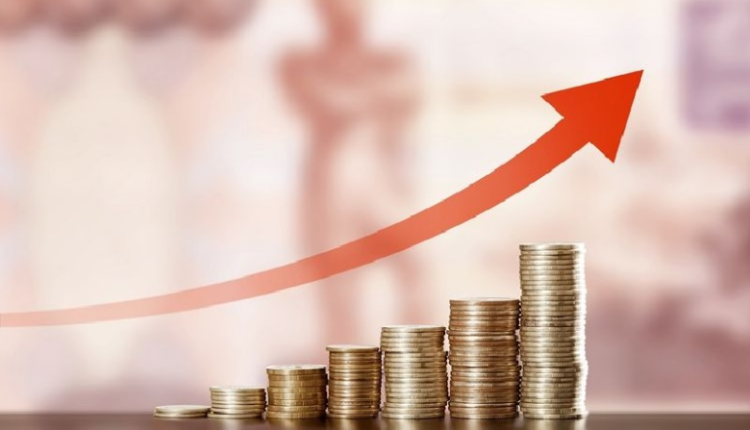By: Nana Gunawan
Indonesia’s economy remains resilient amidst increasing global uncertainty. Strong involvement from the Government in advancing various sectors has been the key to driving sustainable economic growth. In fact, according to data from the Central Statistics Agency (BPS), economic growth in the first quarter of 2024 was 5.11 percent (year on year/yoy), an increase compared to growth in the previous quarter of 5.04 percent (yoy).
Meanwhile, the national inflation rate in May 2024 was 2.8 percent (yoy), which is still considered quite low, which has an impact on Indonesia’s stable economy. Minister of Finance, Sri Mulyani said that inflation began to be controlled since April 2024 after a period of pressure on food prices which increased since December 2023. The volatile food inflation component, which was largely influenced by food prices, also showed a decline to 8.14 percent.
According to Sri Mulyani, the decline in the graph for volatile food inflation has led to quite positive developments because price inflation has an impact on eroding the direct purchasing power of the wider community, especially the lower middle class. Furthermore, administered prices or components regulated by the Government remained stable at low levels, namely 1.52 percent. This could happen because there have been no changes in the various prices regulated by the Government. Meanwhile, core inflation showed slight upward development but remained below the 2 percent level, namely 1.93 percent.
The Minister of Finance also explained that core inflation was contributed by 680 commodities or around 65 percent of total prices in the consumer basket. Meanwhile, administered price inflation was for 41 commodities or 19.2 percent. Meanwhile, there are 126 volatile foods that influence inflation with a weight of 15.8 percent. He also emphasized that the Indonesian economy with inflation tends to be relatively low in a stable condition and in conditions of positive growth of 5 percent this is good, because according to him it is rare for a country to still maintain growth above 3 percent.
On the other hand, Indonesia’s short-term economic prospects remain well maintained. One of them can be seen from the Consumer Confidence Index (IKK) which was stable at 125.2, while the Mandiri Spending Index (MSI) recorded a level of 45 which shows that the average remains high and positive growth. The real sales index also grew strongly by 4.7 percent. Indonesia’s PMI also still shows expansive conditions with a position of 52.1. Electricity consumption for business grew 8.6 percent and industry rose from the negative zone to positive by 1.8 percent. This phenomenon is a positive thing from economic activities and tax revenues from the VAT side, which shows that economic dynamics are still maintained positively.
On the other hand, World Bank Director for Indonesia and Timor-Leste, Carolyn Turk, said that the successful performance of the Indonesian economy was largely due to the Government’s strong macro-economic policy framework, which helped attract investment into Indonesia. In its latest report entitled Indonesia’s Economic Prospects, the World Bank stated that a prudent and consistent macro-economic policy framework is the basis for the successful performance of the Indonesian economy which is recognized by the market. The World Bank also maintains the investment grade rating for the country’s credit, including a stable outlook, so that Indonesia can successfully overcome external shocks, attract investment and support growth.
According to Carolyn Turk, it is important to maintain wise, credible and transparent macro policies while creating fiscal space that allows priority spending on social protection as well as investment in Human Resources (HR) and infrastructure. The World Bank has predicted that Indonesia’s economy will grow steadily at a steady pace in the coming years, driven by increased public spending, increased business investment and stable consumer demand.
Indonesia’s gross domestic product (GDP) growth is projected to reach an average of 5.1 percent per year from 2024 to 2026. Growth in the first quarter of this year is still strong and exceeds the average growth of middle-income countries. Private consumption reached 57% of GDP growth, reflecting consumer confidence supported by declining non-food product inflation, rising wages for civil servants, and good customer service performance.
Indonesia’s stable economic growth is the result of a combination of the right policies, large domestic market potential, and economic diversification. However, challenges such as economic inequality, dependence on commodities, and environmental challenges need to continue to be addressed. By taking advantage of digitalization opportunities, infrastructure improvements and international cooperation, Indonesia has bright prospects to continue to grow and develop.
Inclusive and sustainable development must be the main focus so that all levels of society can feel the benefits of this stable economic growth. Furthermore, with appropriate strategies, it is hoped that the Indonesian economy will be able to maintain a strong pace that is rooted in stability, quality and sustainability.
The writer is an Economic Observer at the Nusa Bangsa Institute.
